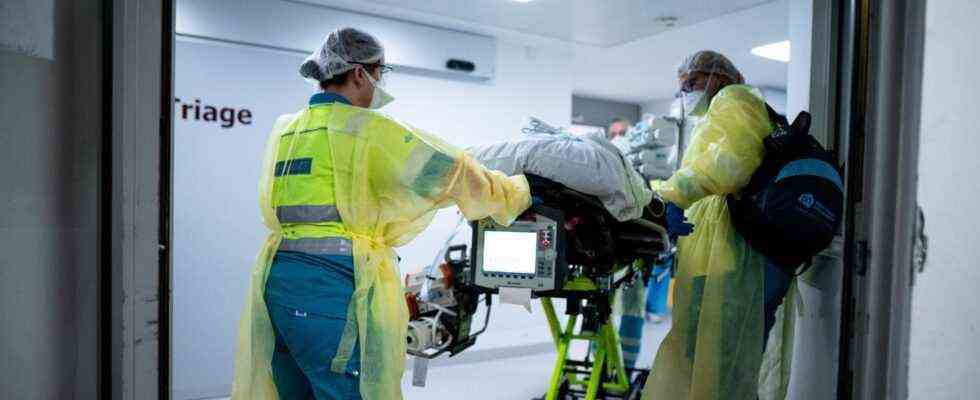Corona pandemic
Constitutional Court: People with disabilities must be protected in triage
With triage, doctors have to decide which patients can and cannot be treated
© Fabian Strauch / DPA
Because of Corona, many intensive care units are threatened with overload – and patients triage. After a year and a half, the Federal Constitutional Court decided on a triage regulation. The court ruled that the legislature must guarantee the protection of people with disabilities.
The Bundestag must “immediately” take precautions to protect people with disabilities in the event of so-called triage. The Federal Constitutional Court announced on Tuesday in Karlsruhe that the protection order due to the risk to the highest-ranking legal asset of life resulted in an obligation for the legislature to act. He violated this because he had not taken appropriate precautions. He must meet this obligation in times of pandemic. In terms of the specific design, he has scope for assessment, evaluation and design. (Az. 1 BvR 1541/20)
The word triage comes from the French verb “trier”, which means “sort” or “choose”. It describes a situation in which doctors have to decide who to save and who not – for example because so many seriously ill corona patients come to hospitals that there are not enough intensive care beds.
Nine people with disabilities and previous illnesses have filed constitutional complaints. They fear being given up by doctors if there are no guidelines. The highest German court now gave them the right. Nobody should be disadvantaged because of a handicap in the allocation of vital intensive care treatment resources that are not available to everyone.
Triage recommendation may not be sufficient
The German Interdisciplinary Association for Intensive Care and Emergency Medicine (Divi) has worked out “clinical ethical recommendations” with other specialist societies. The plaintiffs are concerned about the criteria mentioned there, because the frailty of the patient and additional illnesses also play a role. They fear that they will always be left behind due to their statistically poorer chances of survival.
The Constitutional Court explained that the Divi’s recommendations were not legally binding and “not a synonym for the medical standard in specialist law”. It also points out the possible risks in the assessment that could result from the recommendations. It must be ensured “that a decision is made solely on the basis of the current and short-term probability of survival”.
Great Britain shows what Omicron means – that’s the Corona situation in Europe
15 images
Constitutional complaint pending since mid-2020
The court found that lawmakers have several options for effectively countering the risk of being disadvantaged because of a disability when allocating scarce intensive care resources due to a pandemic. As an example, specifications for a multiple eyes principle for selection decisions or regulations for on-site support were mentioned. “The legislature has to decide which measures are appropriate,” it said in the message.
The constitutional complaint has been pending in Karlsruhe since mid-2020. Associated with this was an urgent motion – which the judges of the responsible First Senate under Court President Stephan Harbarth, however, had rejected. They said at the time that the process raised difficult questions that could not be answered quickly.

